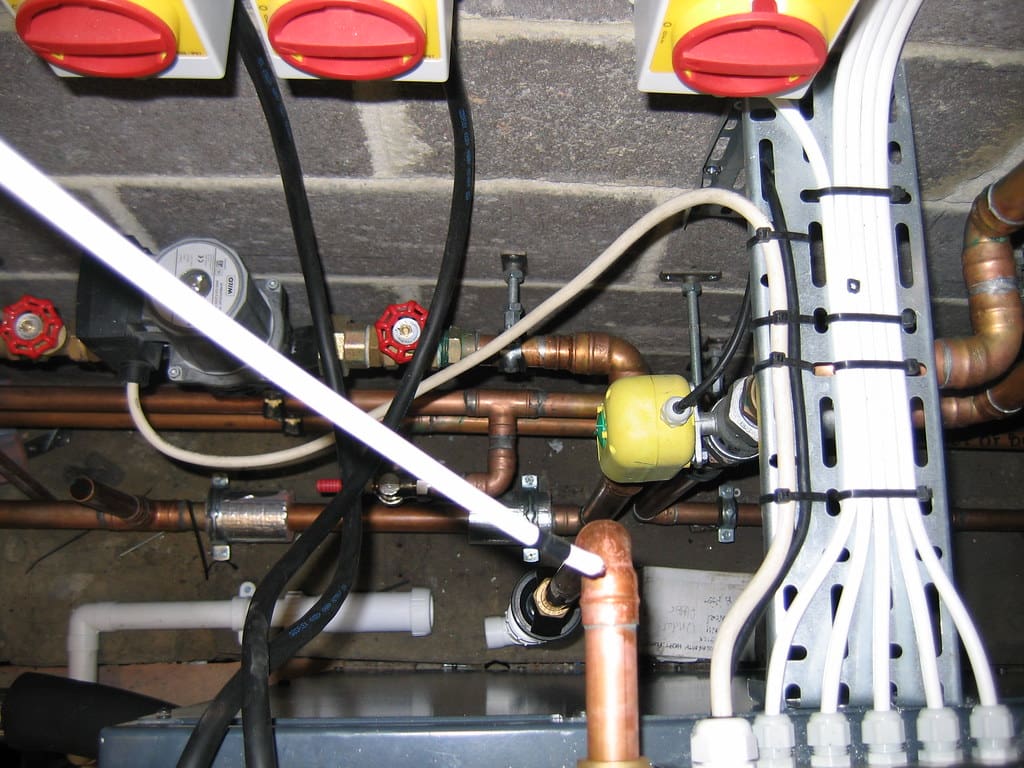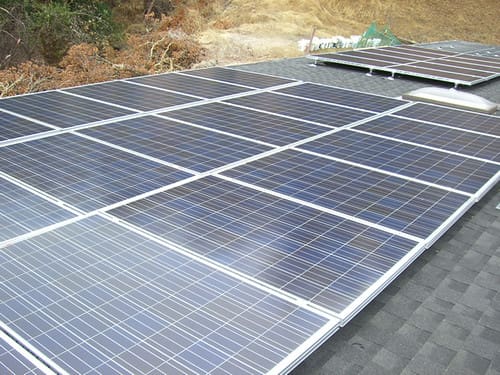As the cold winter months approach, finding efficient and sustainable heating solutions becomes a priority for many homeowners. With advancements in technology, solar heat pumps and versatile air conditioning (AC) systems have emerged as powerful allies in maintaining indoor comfort. These modern solutions not only reduce energy consumption but also contribute significantly to minimizing the carbon footprint. In this article, we explore the benefits of solar heat pumps and versatile AC solutions, emphasizing their role in providing winter comfort without relying on gas furnaces.
Embrace Winter with Efficient Solar Heat Pumps
Winter can be harsh, but embracing the season with the right heating solution can make all the difference. Solar heat pumps are an excellent choice for homeowners looking to stay warm efficiently. By harnessing the power of the sun, these systems provide consistent and cost-effective heating, even during the coldest months.

One of the primary benefits of solar heat pumps is their ability to reduce energy costs. By using solar energy to power the heat pump, homeowners can significantly lower their electricity bills. This is especially important during winter when heating needs are at their peak. Additionally, solar heat pumps offer a sustainable alternative to traditional heating methods that rely on fossil fuels.
Beyond cost savings, solar heat pumps contribute to a greener planet. By utilizing renewable energy, these systems reduce greenhouse gas emissions and lessen the dependency on non-renewable resources. For environmentally-conscious homeowners, solar heat pumps offer an effective way to stay warm while making a positive impact on the environment.
Heat Pumps: A Sustainable Winter Heating Solution
When it comes to sustainable winter heating solutions, heat pumps stand out as a top choice. Unlike conventional heating systems that generate heat, heat pumps transfer heat from one place to another. This makes them much more efficient, as they use less energy to achieve the same level of warmth.
Heat pumps work by extracting heat from the air, ground, or water and transferring it indoors. This process is highly efficient, even in colder climates where traditional electric furnaces may struggle. With advancements in technology, modern heat pumps are capable of operating effectively at lower temperatures, ensuring consistent warmth throughout the winter.
The sustainability of heat pumps extends beyond their efficiency. By reducing the reliance on fossil fuels, heat pumps help decrease the overall carbon footprint of a household. Furthermore, they can be paired with solar panels to create a fully renewable heating solution. This combination offers an environmentally friendly and cost-effective way to maintain comfort during the winter months.
Solar-Powered Homes: Stay Warm Without Gas Furnaces
Solar-powered homes offer a unique advantage when it comes to winter heating: the ability to stay warm without relying on gas furnaces. Gas furnaces, while effective, contribute to greenhouse gas emissions and are subject to volatile fuel prices. Solar heat pumps provide a cleaner and more stable alternative.
In a solar-powered home, the integration of heat pumps ensures that the heating system runs efficiently on renewable energy. Solar panels convert sunlight into electricity, which can then be used to power the heat pump. This not only reduces the household’s carbon footprint but also provides significant savings on energy bills, especially during the high-demand winter season.

Moreover, the absence of gas furnaces in solar-powered homes eliminates the risks associated with gas leaks and carbon monoxide poisoning. Homeowners can enjoy peace of mind knowing that their heating system is safe, reliable, and environmentally responsible. Embracing solar heat pumps in a solar-powered home is a step towards a sustainable and comfortable winter.
Versatile AC Solutions for Year-Round Comfort
While heat pumps are essential for winter comfort, versatile AC solutions play a crucial role in maintaining year-round indoor climate control. Modern AC systems are designed to provide both heating and cooling, making them a versatile addition to any home. These systems ensure that homeowners are comfortable regardless of the season.
Dual-function AC units can switch between cooling in the summer and heating in the winter, providing a seamless transition as the seasons change. This versatility eliminates the need for separate systems, reducing installation and maintenance costs. Homeowners can enjoy the convenience of a single system that meets all their climate control needs.
In addition to their versatility, modern AC solutions are highly energy-efficient. Many of these systems are equipped with variable speed compressors and smart thermostats, which optimize energy use and maintain consistent temperatures. This not only enhances comfort but also leads to significant energy savings throughout the year.
The Magic of Heat Pumps in Cold Winter Months
The magic of heat pumps lies in their ability to provide efficient heating, even in the coldest winter months. Unlike traditional heating systems that generate heat through combustion or electrical resistance, heat pumps transfer existing heat from the outside air into the home. This process is highly efficient and effective, even when outdoor temperatures are low.
One of the key features of heat pumps is their ability to reverse the refrigeration cycle. During winter, heat pumps extract heat from the outside air and transfer it indoors. This process is accomplished using a refrigerant that absorbs and releases heat as it cycles between the outdoor and indoor units. The result is a steady and reliable source of warmth.
Advancements in heat pump technology have made them suitable for colder climates. Modern heat pumps are equipped with features like variable speed compressors and enhanced defrost cycles, which allow them to operate efficiently at lower temperatures. This ensures that homes remain warm and comfortable, even during the most frigid winter days.
Winter Comfort: Efficient Heating with No Gas Furnaces
Achieving winter comfort without gas furnaces is not only possible but also beneficial for both the environment and household finances. Heat pumps and electric furnaces provide efficient heating solutions that eliminate the need for gas, reducing carbon emissions and enhancing safety.
Electric furnaces, while effective, can be energy-intensive. Heat pumps, on the other hand, offer a more efficient alternative. By transferring heat rather than generating it, heat pumps use significantly less electricity, resulting in lower energy bills. This efficiency is especially valuable during winter when heating demands are high.
Moreover, the absence of gas furnaces reduces the risk of harmful emissions and potential gas leaks. Homeowners can enjoy a safer and healthier indoor environment. With the combination of heat pumps and electric furnaces, achieving winter comfort is both efficient and environmentally friendly.
Solar Energy: Powering Your Winter Heating Needs
Solar energy has revolutionized how we approach winter heating. By harnessing the sun’s power, homeowners can create a sustainable and cost-effective heating solution. Solar panels generate electricity that can be used to power heat pumps, ensuring a consistent and renewable source of warmth.
The integration of solar panels with heat pumps offers numerous benefits. Firstly, it reduces reliance on the grid, leading to significant savings on energy bills. During winter, when heating needs are highest, solar panels can provide a substantial portion of the required electricity, enhancing overall efficiency.
Secondly, using solar energy for heating reduces the household’s carbon footprint. By transitioning to renewable energy, homeowners contribute to a cleaner environment. This eco-friendly approach to winter heating aligns with global efforts to combat climate change and promote sustainability.
Electric Furnaces vs Heat Pumps: A Winter Comparison
When comparing electric furnaces and heat pumps for winter heating, it’s essential to consider efficiency, cost, and environmental impact. Both systems have their advantages, but heat pumps often come out on top in terms of overall performance.
Electric furnaces generate heat through electrical resistance, making them straightforward but energy-intensive. They are effective in providing immediate warmth but can lead to high electricity bills. In contrast, heat pumps transfer heat from the outside air, using less energy to achieve the same level of comfort. This efficiency translates to lower operational costs over time.
From an environmental perspective, heat pumps are more sustainable. They reduce greenhouse gas emissions by utilizing existing heat rather than generating new heat through combustion or resistance. Additionally, heat pumps can be powered by solar energy, further enhancing their eco-friendly credentials. For homeowners seeking a balance of efficiency, cost-effectiveness, and sustainability, heat pumps are often the superior choice.
Eco-Friendly Heating Solutions for Chilly Winters
Eco-friendly heating solutions are becoming increasingly important as we strive to reduce our carbon footprint. Heat pumps and solar-powered systems offer sustainable alternatives to traditional heating methods, ensuring that homes remain warm without compromising the environment.
Heat pumps are at the forefront of eco-friendly heating technology. By transferring heat rather than generating it, they use less energy and produce fewer emissions. This efficiency is particularly beneficial during winter when heating demands are high. When paired with solar panels, heat pumps create a fully renewable heating solution that minimizes environmental impact.
Solar-powered heating systems further enhance eco-friendliness. By harnessing the sun’s energy, these systems reduce reliance on fossil fuels and lower greenhouse gas emissions. Homeowners can enjoy the dual benefits of sustainable heating and reduced energy costs. Embracing these eco-friendly heating solutions is a step towards a greener and more comfortable winter.
Winter Warmth: Solar Heat Pumps and Modern AC Systems
Winter warmth is achievable with the right combination of solar heat pumps and modern AC systems. These technologies work together to provide efficient and sustainable heating, ensuring that homes remain comfortable throughout the cold season.
Solar heat pumps harness the sun’s energy to provide consistent and cost-effective heating. By transferring heat from the outside air, these systems offer a reliable source of warmth without relying on fossil fuels. The integration of solar panels further enhances efficiency, reducing energy costs and environmental impact.
Modern AC systems complement heat pumps by providing versatile climate control. With the ability to switch between heating and cooling, these systems ensure year-round comfort. Energy-efficient features like variable speed compressors and smart thermostats optimize performance, leading to significant energy savings. Together, solar heat pumps and modern AC systems create a comprehensive solution for maintaining winter warmth and overall indoor comfort.
In conclusion, solar heat pumps and versatile AC solutions offer a modern approach to achieving winter comfort. By leveraging renewable energy and advanced technology, these systems provide efficient and sustainable heating without relying on gas furnaces. Homeowners can enjoy significant cost savings, enhanced safety, and a reduced carbon footprint. As we embrace the winter season, investing in eco-friendly heating solutions like solar heat pumps and modern AC systems is a step towards a warmer, greener, and more comfortable home.


